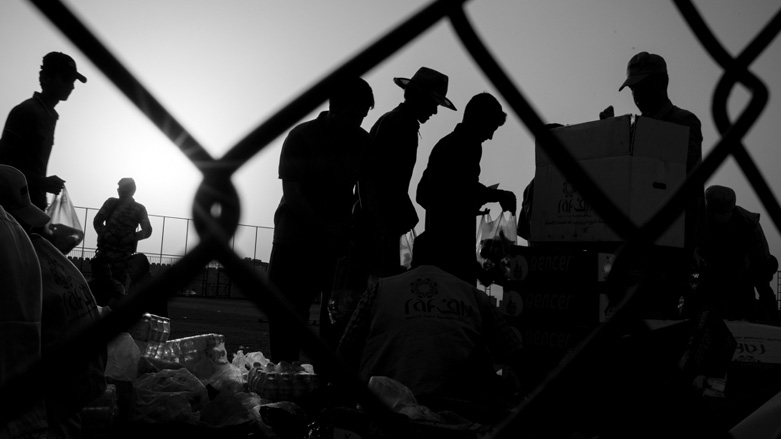Iraqi IDP figures drop from four million people to below two million: IOM

ERBIL (Kurdistan 24) – For the first time since 2014, the number of displaced people in Iraq has fallen below two million, the International Organization for Migration (IOM) stated on Tuesday.
Data collected by IOM for the 100th Displacement Tracking Matrix (DTM) concludes that 1,931,868 people remain displaced inside Iraq, the lowest figure since November 2014.
The 100th round reported that nearly four million people had returned home. The result of the data collection is vital for IOM and the UN Migration Agency as it marks over four years of tracking displacement in Iraq.
Following the emergence of the Islamic State in northern Iraq, six million people were displaced which makes 15 percent of the country’s entire population.
IDPs continue to return home in 2018, but at a slower pace than last year, according to IOM.
The provinces with the highest number of returnees are Nineveh (1.49 million), Anbar (1.27 million), Salahuddin (nearly 553,000), Kirkuk (296,000), Diyala (222,000), and Baghdad (77,000), the organization stated.
The remaining IDPs are concentrated in: Nineveh (602,000), Duhok (349,000), Erbil (217,000), Salahuddin (169,000), Sulaimani (151,000), and Kirkuk (124,000). Of those who continue to be displaced, 1.2 million are in private settings, 574,000 are in camps, and 176,000 are in critical shelters.
Destruction of housing and infrastructure, lack of financial means and job opportunities, and security concerns are one of the main obstacles that prevent IDPs from returning to their hometowns.
“IOM DTM data has documented the phases of the crisis and has been critical for planning humanitarian assistance,” Marta Ruedas, the United Nations Humanitarian Coordinator in Iraq, stated.
“Data on returns is also essential for this next phase of our support for recovery and reintegration.”
IOM Iraq Chief of Mission Gerard Waite said DTM makes an important contribution to humanitarian efforts in Iraq by informing the direction of resources to displaced and returnee populations.
“Hundreds of thousands of Iraqi families continue to be displaced and face significant obstacles to return,” he noted.
“Both displaced, and returnee populations are often vulnerable and need humanitarian assistance to regain their livelihoods and support their families.”
Editing by Karzan Sulaivany
